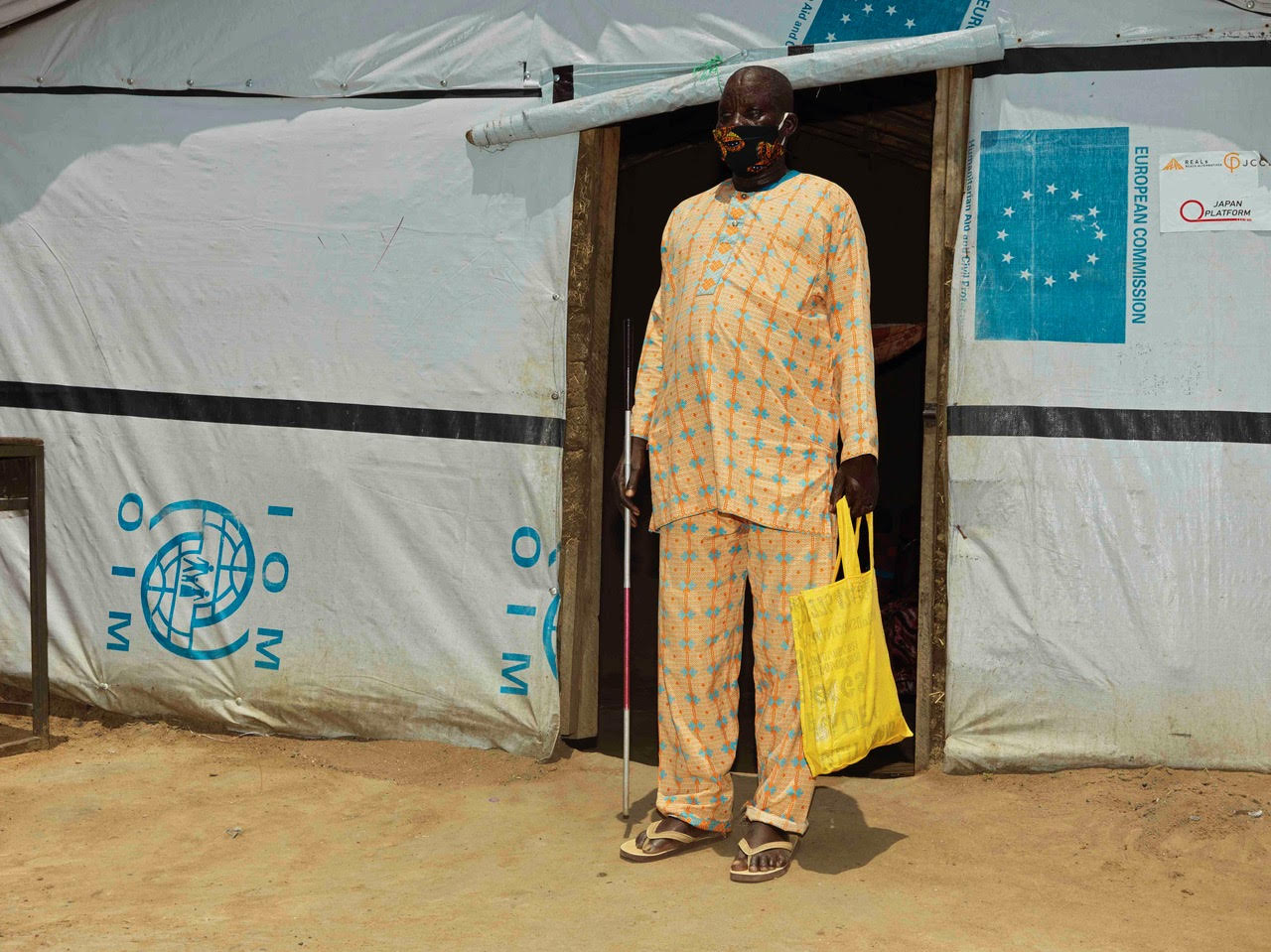Blind and coping with the coronavirus pandemic in South Sudan

Since civil war broke out in South Sudan over seven years ago, violence and unrest has forced millions of people to flee their homes, including John and his family. Although John survived the civil war his struggle for survival on a daily basis continues.
The war left a detrimental pscyhological impact on John affecting his mental health which he believes led to the loss of his eyesight. Now living in a refugee camp, the coronavirus pandemic has brought new deprivations to internally displaced people like him.
John, 67, has been living in Mangateen camp for internally displaced people since he fled from the civil war hitting his home town in 2016. He recalls fleeing with his children in his arms whilst caught in the crossfire and guns shooting at them.
We arrived here (Mangateen Camp) carrying our children on our shoulders while guns were shooting as we tried to get away. The conflict came like a trailblazer and my children were killed.
John has never returned home since arriving at the camp with his surviving children and two spouses. He was still able to see before the battle in Juba that year but his sight deteriorated slowly after he arrived in the camp.
As a result of what happened to my children and what happened to my country is what brought blindness to me.
My life since coronavirus changed from good to bad, (explaining that because of the movement restrictions in response to covid-19) the people that were helping me before were now not coming.
We're dying twice because our donors were restricted from coming in here because of coronavirus and we are also restricted to go out and pray to God to provide for us.
With his surviving children and two spouses John started a new life at the camp but losing his sight made life difficult. During the outbreak of COVID-19 John was completely blind and dependent on his family.
For older people like John the months of isolation due to COVID-19 was a period when a trip to the latrines was very challenging.
For us blind and disabled people of the camp a big problem is sanitation. The latrines are full and they haven't been discharged for 3 months. We blind people can't move because if you move in the wrong direction you can step on something that has an infection and because you don't see you then bring that infection into the house.
As a part of Age International’s COVID-19 response the latrines in Mangateen camp were discharged and hygiene kits were distributed to vulnerable elderly and disabled people.
We are happy you have come here to help us.
Age International’s work in Mangateen camp has included providing older people with vital food and water as priority relief items within the camp.
Additionally, support such as cash transfers were introduced to support older people like John to cover their basic needs beyond the immediate relief items.
Help us to continue supporting older people around the world
Whether with better healthcare, a secure income or life-saving aid – your gift could help change lives.
 Follow us on social media
Follow us on social media
Keep seeing our stories or ask us a question - connect on Facebook and Twitter.
